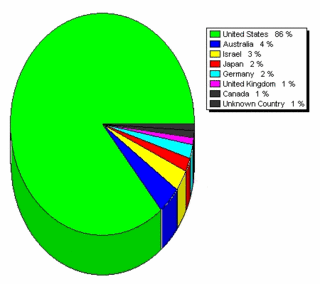It’ll be like having a look behind the curtain in the Wizard of Oz.
–Richard Landes, originator of Second Draft, in an interview at Solomonia.
By now you may have heard the buzz about Second Draft, a new media watchdog website (I was originally alerted to its existence by Daniel in Brookline).
Second Draft is a site that needs to be publicized and visited by as many people as possible, and so I’m trying to do my part. It shows what the internet can accomplish in opening up and expanding our ability to get at truth, and evaluating the honesty of what we read in the MSM and elsewhere, a topic I’ve discussed (perhaps ad nauseum) on this site.
Here’s a quote explaining Second Draft’s mission:
This website is devoted to exploring some of the problems and issues that plague modern journalism. In this age of globalization, the media has unprecedented influence on the way we see the world. And yet, whether out of misplaced good intentions, unconscious agendas and predispositions, or unwarranted faith in false information, they can get the story dramatically wrong. Therefore, we want to revisit and critique journalism’s “first draft of history”, and hopefully produce a more accurate second one. In our current investigations we present the story the way the mainstream media initially told it, introduce further evidence, and let you decide what you think really happened.
Right now, founder Landes, a professor of history at Boston University, has been concentrating on the work of what he calls “Pallywood.” It’s an ironic pun on India’s “Bollywood” film industry–but Pallywood, unlike Bollywood, is not for entertainment purposes.
Here is Second Draft’s explanation of Pallywood:
The material we show here constitutes a tiny fragment of a much larger phenomenon, raw footage from Palestinian photographers working for major western media outlets. From this material, our news agencies prepare news reports that shape our perceptions of what is happening in the Middle East Conflict.
We think that a close analysis of this material defies all expectations of what such footage should resemble, and suggest that Palestinian photographers do not at all share the same production and journalistic values espoused by a free press. We leave the experience and the judgment to you…
We feel that the material you are about to see bears witness to a failure of our MSM culture comparable to that of the Emperor and his court when he paraded naked in front of his public. Moreover, that error is kept from us only by our media’s refusal to let the public see their sources. Only the chance circumstances that brought this material to a few people’s attention, and the existence of an open internet where we can post the material, makes it possible for the public to consider this costly media embarrassment.
Future projects are to be announced; the site will not be limited to Pallywood and the Palestinians, or even the Middle East.
How and why did Landes take on this project? His background as a historian seems to be part of it, as well as in interest in the history of communications, and in the ability of experts to be duped by forgeries. Landes, who self-identifies as a leftist in this must-read Solomnia interview, sounds like a thoughtful man who doesn’t mince words when describing his current view of the MSM:
Look, everybody says that journalism is the first draft of history, but in this case, the first draft is so wrong that as a historian I feel like I need to step in and say Hey, wait a minute you guys. Even as a first draft, this stinks! [laughs] As a professor of history, I’ve got to say that if a graduate student wrote a first draft that was as credulous in its use of sources as the media has been in the case of the “second intifada,” then I’d say he wouldn’t make it through the first semester of grad school.
Solomon asks Landes whether, in his opinion, the the press was “duped, or did they play along with it? Were they willing participants?”
Here is Landes’ reply:
We want the web site to raise these questions and let people make their own judgments. Now, we think we have some answers, but we’re post-modern enough to think there isn’t only one answer. So for instance, in answer to your question, if we were to take a pie and slice it up, there would be a slice of journalists just out to make their living by providing their bosses in the West with action footage, another slice of people harboring some sort of bad faith or resentment — some kind of strong anti-Jewish feelings — then you’ve got another chunk of it who are people who really believe they are helping the Palestinians by recycling their propaganda. There’s this great line by Bob Simon [of 60 Minutes], ‘In the Middle East, one image can be worth 1000 weapons.’ I think that there’s a prevalent view in the press that since the Israelis have most of the weapons, the media can “level the playing field” by giving the Palestinians the media victory.
Solomon asks Landes whether he will be considered a conservative for the stance he’s taken on this issue, and Landes replies like an old-fashioned liberal, one of Norman Geras’ “principled leftists”:
No, it’s a liberal issue! Look it’s…the thing people don’t understand is that ‘our’ conservatives – the people like George Bush and Ariel Sharon – are so far to the left when you place them in the framework of say Arab politics that it’s a joke…OK? There’s no Arab leader that would tolerate the kinds of attacks that George Bush has tolerated without making sure that the people who did it were severely punished for their effrontery. The Arab Michael Moore who exposed the lies told by the Palestinian media that Arafat used to dupe the Palestinians into a losing war would never have survived long enough to show it.
Landes understands the potential for the blogosphere to change things. He turned to the internet because the MSM, not too surprisingly, wasn’t especially interested:
I teach the history of communications revolutions. I know the impact that the printing press had on the sort of imbedded manuscript culture that came before it. The internet will be in the 21st century to print media what the print media was to manuscript in the 16th. That’s why I’m going to the web, to the blogosphere. In the mainstream media, busy covering its naked ass, I can’t get the time of day. As one guy at ABC who admitted he was convinced by my material put it — “I’m not sure how much appetite there is for this stuff here.”
So I’m doing my best to show the ABC guy that the appetite is strong for viewing original sources and letting the reader be the judge.
Perhaps the MSM doesn’t understand the force of allowing the reader access to original footage and source material. Or perhaps it does, and that’s the problem. It could be that many in the MSM have the attitude that making news is like making sausage–they fear that if they let you see how it’s actually made, you might lose some of your taste for it.



